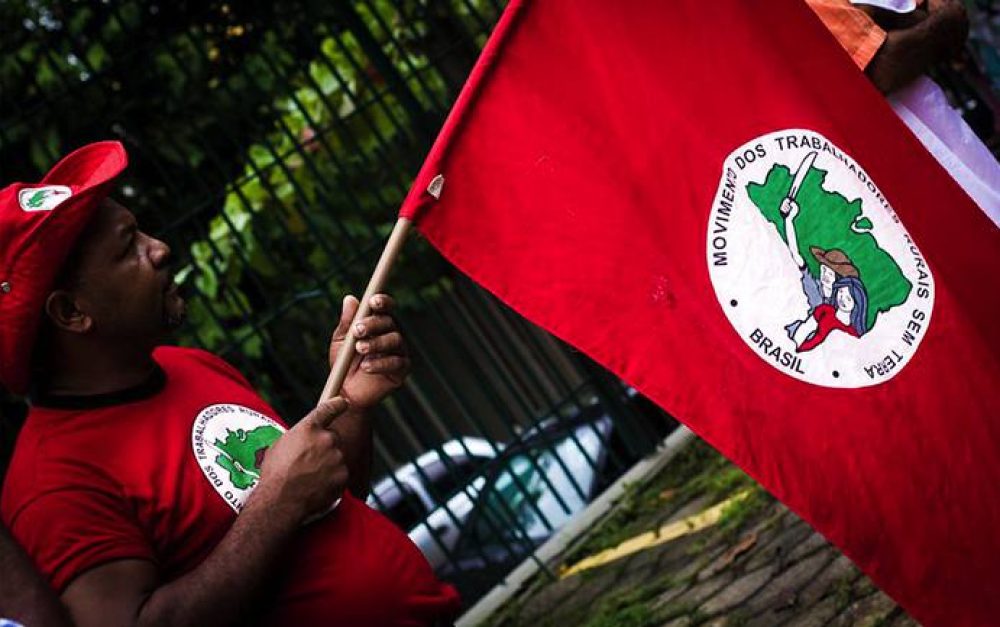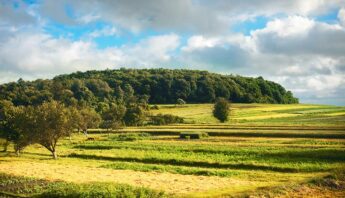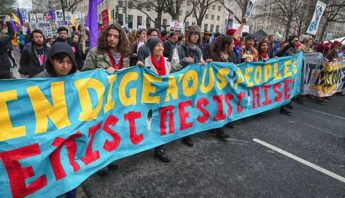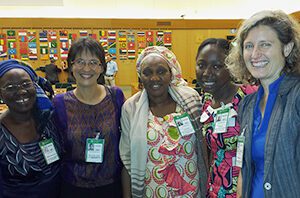Note: This blog was updated on October 30, 2019, to reflect (positive!) developments in the Paulo Freire Training Center Case.
While images of the devastating fires in the Amazon circulate the globe, an influential agroecology training center is being targeted for closure by Brazil’s new federal government — led by President Jair Bolsonaro — with its sights set on silencing social movements.
Our partners at MST (Movimento dos Trabalhadores Rurais Sem Terra, or the Landless Rural Workers Movement) are determined to save the Paulo Freire Training Center, a community hub and processing center for small farmers and landless workers from all over Brazil.
The threat to the Paulo Freire Center targets the political and educational work developed by the center, which follows in the footsteps of the long movement struggle to defend education, the Amazon and social rights in Brazil.
As of mid-October, after a month of community action and thousands of letters of solidarity submitted, a judge from the 24th federal court of Caracau decided to suspend the eviction order. MST celebrates this victory, while at the same time awaiting word on two other important decisions:
1. The complete cancellation of the center’s repossession sentence from a Federal justice;
2. A conciliatory and peaceful ruling from the National Institute of Colonization and Agrarian Reform (INCRA) to cede the commons area of the Paulo Freire Training Center that continues to fulfill its social function to the residents of Pernambuco.
A brief history of MST
Brazil’s Landless Worker Movement (MST) is one of the largest rural social movements in the world, with a membership of 1.5 million people in 24 of the 26 states in Brazil. The organization was founded in 1984 with the goal of reclaiming land as a basis for access to health, education, housing and a dignified life.
Through reclaiming, living, and working on land that was not in use agriculturally, landless farmers in Brazil were able to make use of poor quality land with degraded soils for family farming. MST farmers began developing intensive agroforestry systems with vegetable intercropping, cover cropping for soil restoration, and integrated pest management.
Agroecology is the basis of MST communities and schools; agroecology as science, practice, and movement is utilized to restore traditional farming knowledge and create a viable alternative to chemical-intensive agriculture.
The Amazon burns, MST resists
Today, MST reimagines regional economies to work in favor of small-scale farmers while promoting food and agriculture systems that do not rely on pesticides. As the fires in the Amazon continue to burn, we’re reminded that MST’s work is critically important.
Land in Brazil has been increasingly deforested for soy and sugarcane biofuel production — both of which are genetically modified to tolerate glyphosate application, putting small-scale farmers and indigenous communities at odds with chemical-intensive agriculture.
After nearly two decades of successful grassroots resistance to deforestation, the government is now effectively handing over the Brazilian forest system to corporate agriculture, reversing previously-won protections of Brazilian ecosystems, small-scale farmers and indigenous peoples. On his first day in office, for example, Brazilian President Jair Bolsonaro gutted the protections of indigenous territories held under Fundação Nacional do Índio (the National Indian Foundation, FUNAI), and placed decision-making on indigenous territories under the Ministry of Agriculture.
Bolsonaro has also merged the environment and agriculture ministries, and appointed Tereza Cristina Dias, the former president of an agribusiness lobby, to lead the new combined agency. Ms. Dias swiftly set in motion the approval of previously banned pesticides.
MST’s climate solutions
MST’s work to protect small scale farmers and indigenous peoples reminds us that the Amazon is not uninhabited forest territory, but a hugely diverse region in terms of both biodiversity and communities. To conserve the Amazon, we must support those defending indigenous and traditional communities and their agroecological practices.
MST training centers and the agroecological practices they support have successfully transformed degraded land through reforestation and the incorporation of food production. This model of agroecology has proven to be a key solution to climate change, including mounting environmental problems due to deforestation and forest fires in Brazil.
However, the Bolsonaro administration has its sights set on silencing social movements — especially those with the power to undermine chemical-intensive agriculture. The eviction notice for the MST’s Paulo Freire Training Center represents more than the closing of a physical space. Institutions such as this training center are a tool for another future — a future that respects and follows the leadership of indigenous communities and characterized by food sovereignty, biodiversity, and climate resilience.
Photo: overmundo | Flickr







